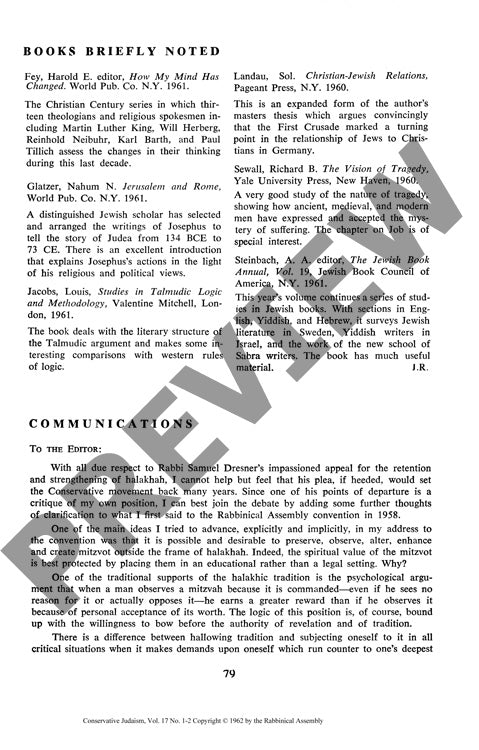Communications
Couldn't load pickup availability
This collection of communications addresses fundamental questions regarding halakhic authority and religious practice within Conservative Judaism. The primary methodological approach involves theological debate and philosophical analysis of competing perspectives on Jewish law and observance. Jack Cohen argues against Rabbi Samuel Dresner's advocacy for strengthening halakhah, contending that mitzvot can be preserved and enhanced outside traditional halakhic frameworks through educational rather than legal approaches. Cohen presents evidence from contemporary Israel to demonstrate the potential dangers of rigid halakhic enforcement, arguing that democratizing religious authority better serves modern pluralistic Jewish communities. Myron Fenster responds to editorial calls for minimal halakhic standards within the Rabbinical Assembly, expressing concerns about loyalty oaths and enforcement mechanisms while acknowledging areas of broad consensus. Additional correspondence between Jacob B. Agus and Emil L. Fackenheim explores the tension between "committed thinking" and objective philosophical inquiry in Jewish religious thought. The key findings reveal significant disagreement within Conservative rabbinical leadership regarding the role of traditional halakhic authority versus democratic religious decision-making. The communications conclude that while unity of purpose exists among Conservative rabbis, fundamental philosophical differences persist regarding the appropriate balance between traditional religious law and individual conscience in contemporary Jewish practice.

More Information
-
Physical Description
-
Publication Information
Published 1962
ISBN
-
Publication Credits

